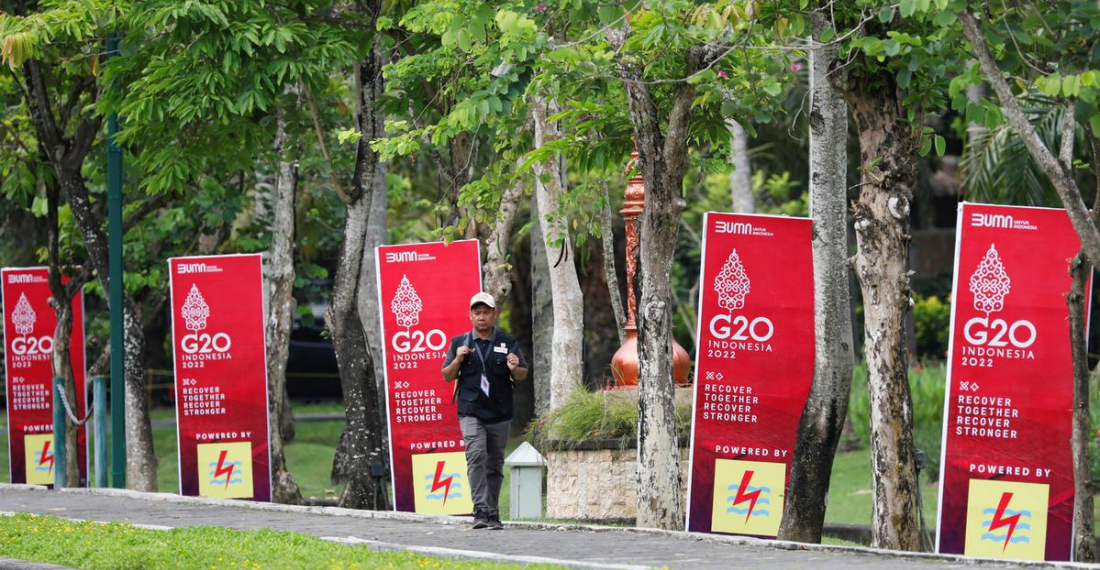Leaders of the G20 countries are meeting on the Indonesian island of Bali, with the war in Ukraine casting a shadow on the proceedings.
Indonesia, the world’s fourth-most populous country and Southeast Asia’s largest economy, is hosting the summit under the theme “Recover together, recover stronger” in the wake of the coronavirus pandemic and its economic consequences.
Although the summit’s official focus is on financial stability, health, sustainable energy, and digital transformation, host Indonesia faces another layer of complexity as it tries to bridge rifts within the G20 over the war in Ukraine. Joko Widodo, the Indonesian president, acknowledged the mood during his opening remarks on Tuesday, just before the closed-door discussions began. “I understand we need huge efforts to be able to sit together in this room,” he said, while calling for collaboration among countries. He pointed out that the world could not afford to fall into “another Cold War,” adding that nations must work to “end the war.” He said: “Today, the eyes of the world are on our meeting. Will we score success? Or will we add one more to the list of failures? For us, G20 must succeed and cannot fail.”
Seventeen G20 leaders are attending this week’s summit, including US President Joe Biden, Chinese President Xi Jinping, French President, Emanuel Macron, German Chancellor Olaf Sholz, Turkish president Recip Tayip Erdogan and Saudi Crown Prince Mohammed bin Salman. Conspicuous by his absence is Russian president Vladimir Putin, who stayed away according to reports, because of fear he may be snubbed by other world leaders.
Indonesia also invited other nations and international organizations to take part, adding to a long list of world leaders that includes Dutch prime minister, Mark Rutte, UAE President Mohammed bin Zayed Al-Nahyan and Singaporean Prime Minister Lee Hsien Loong.
Volodymyr Zelensky, the president of Ukraine, addressed G20 leaders via video link on the summit’s first day, in which he shared his optimism that the conflict’s end could be in sight.
Analysts expect the war to feature prominently in the summit’s final communique, despite calls by the Indonesian hosts for dialogue and collaboration to resolve global economic problems such as inflation, and food and energy security.
News agencies reported on Tuesday that leaders of the world’s largest economies appeared ready to convey a strong message condemning Russia’s invasion of Ukraine, though the draft declaration would still need to be approved by all the group’s members.
Established in 1999 in the wake of the Asian financial crisis, the G20 was originally intended to foster global economic cooperation. But it has since morphed into a forum addressing urgent world problems. This year’s focus was on health infrastructure and food security.
The annual leaders’ summit also serves as an opportunity for informal diplomatic exchanges, as heads of state participate in bilateral talks on the sidelines of the big meeting.
source: commonspace.eu with agencies







